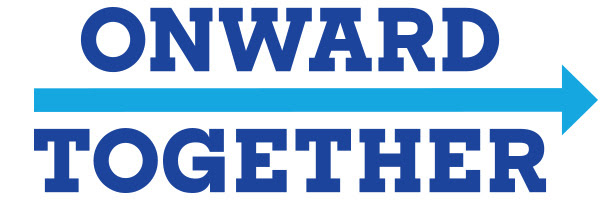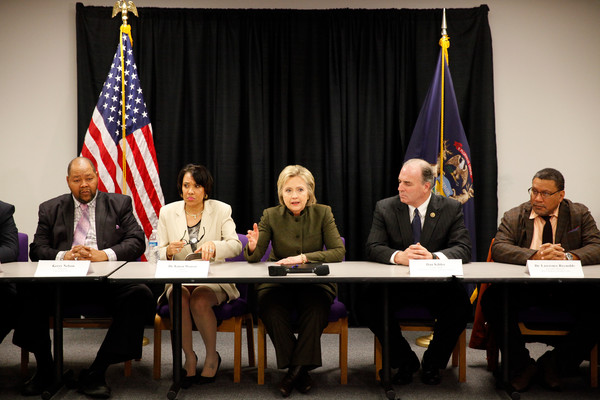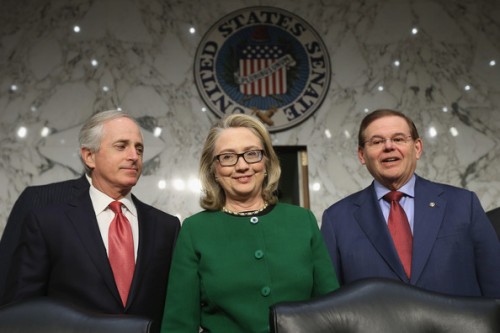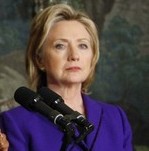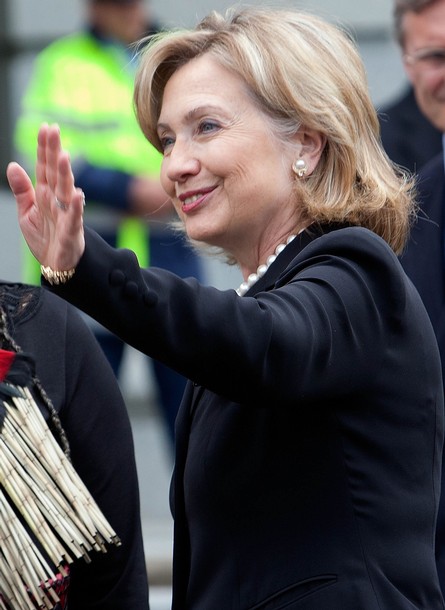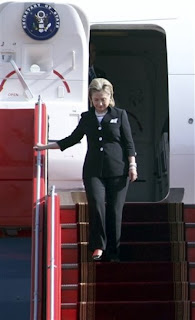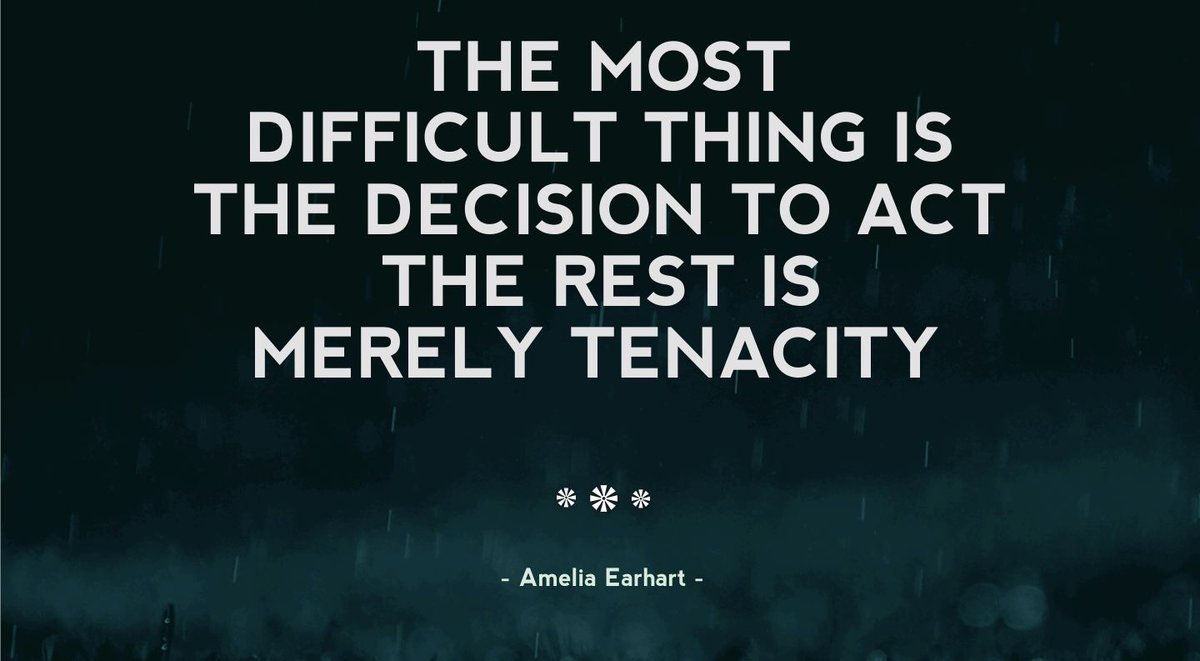These photos are from yesterday when Mme. Secretary flew from Cartagena to Brasilia.
Posts Tagged ‘Colombia’
Hillary Clinton: Wheels Up Colombia/Wheels Down Brazil
Posted in Foreign Policy, Hillary Clinton, Hillary Clinton Images, Hillary Rodham Clinton, Secretary of State, Secretary of State Travel, state department, U.S. Department of State, tagged Brazil, Colombia, Foreign Policy, Hillary Clinton, Hillary Rodham Clinton, Secretary of State, State Department, U.S. Department of State on April 16, 2012| Leave a Comment »
Last Dance?
Posted in Foreign Policy, Hillary Clinton, Hillary Clinton Images, Hillary Rodham Clinton, Secretary of State, Secretary of State Travel, state department, U.S. Department of State, tagged Cartagena, Colombia, Foreign Policy, Hillary Clinton, Hillary Rodham Clinton, Secretary of State, State Department, Summit of the Americas, U.S. Department of State on April 15, 2012| 19 Comments »
While Secretary Clinton kicked back (deservedly) at a salsa bar ironically named “Havana,” word here was that this might be the last time the U.S. participates in the Summit of the Americas due to disagreement among member nations over the inclusion of Cuba.
Hillary Clinton: Remarks at the Summit of the Americas
Posted in Foreign Policy, Hillary Clinton, Hillary Clinton Images, Hillary Rodham Clinton, Secretary of State, Secretary of State Travel, state department, U.S. Department of State, tagged Colombia, Foreign Policy, Hillary Clinton, Hillary Rodham Clinton, Secretary of State, State Department, Summit of the Americas, U.S. Department of State on April 13, 2012| 5 Comments »
Remarks at the Summit of the Americas Civil Society Meeting
Remarks
Hillary Rodham Clinton
Secretary of StateCartagena, ColombiaApril 13, 2012
SECRETARY CLINTON: Good afternoon. It is wonderful to be here for this social forum, and I want to thank President Santos for that excellent speech that covered so many of the important issues that are facing the Americas. And I also wish to thank Maria Angela for the excellent work and the great collegiality as a foreign minister, and all of my colleagues as foreign ministers, and a special warm welcome to President Morales. He and I were born on the same day, and I am delighted that he is here to give the closing address.
I think we just heard a comprehensive review of many of the issues that are confronting us in this hemisphere. What I am excited about is the progress we are making and the vision that we have that will drive that progress further. I remember when the first Summit of the Americas was held. My husband hosted it in Miami. It was 18 years ago. It was like a hundred years ago, because the entire political, cultural, economic landscape of the Americas has changed in those short 18 years. Just look around you. This forum is a great tribute to that change.
When I think of the challenges that we face – how to strengthen democracy and the rule of law, reduce crime and inequality, advance the lives of indigenous people, of women and girls – it is clear that government alone never could and never would do that without the strong support and partnership of civil society.
I’ve often said that a democratic society is like a three-legged stool. One leg must be responsible, accountable government. The second leg must be a private sector that creates jobs and opportunities for people. And the third leg must be a robust civil society that speaks up on behalf of those who may not be able to speak for themselves – those living in poverty, those working without the protections of good conditions for their labor, those who are lacking social status or education. If one of those legs – government, economy, civil society – is too short or is cut off, the stool collapses.
So the activists and the advocates that you have heard from have the most important voices at this summit. And when discrimination, poverty, inequality stifle those voices, then we need civil society more than ever.
Now, I will certainly say that sometimes these conversations are not easy. Certainly change does not happen as quickly as many of us wish. But you can see the slow, steady movement here in this hemisphere: more people living under governments they have elected, more people breaking the bonds of extreme poverty, more people seeing their children be educated and attain positions in society that they could only have dreamed of.
So the United States considers our partnerships with civil society critical. And we are actually running a dialogue with civil society around the world. We’ve also launched the Open Government Partnership, and on Tuesday I will join President Rousseff in Brasilia to host the next meeting of this Partnership, which includes Colombia and 14 other countries in our hemisphere. We want all governments here – but around the world – to improve citizen security, to end impunity, to strengthen human rights, and expand economic opportunity.
We are particularly focused on discrimination and intolerance. Now, these are issues my own country has certainly addressed. And when I came in, I heard someone talking about the Afro Latino. Well, we now have an Afro American president. And we’ve seen what that symbolizes, but we also know our work is not yet done. (Applause.)
So we are partnering with countries like Colombia and Brazil to try to eliminate racial and ethnic discrimination and promote equality. And in preparation for the sixth Summit of the Americas, we have been delighted to support placing these issues of social inclusion, of affected people of African descent, indigenous people, women and youth at the forefront of our preparations. And I am also very pleased that as I walked in, the first presentation I heard was about protecting the rights of the LGBT citizens here in the hemisphere. Thank you for raising that. Thank you for putting it on the agenda. (Applause.)
Here in Colombia, we are proud to be partnering with the government and investing $61 million in helping Colombia’s Afro descendents and indigenous communities. (Applause.)
Our future depends on translating these ideas, these speeches, into concrete actions. So we will do our best – those of us in government here at the summit – to make sure the commitments we make in Cartagena are moved into actions. But we need you in civil society. (Applause.) We need you to remind us, to prod us, sometimes to embarrass us, about keeping those commitments.
I am privileged on behalf of my country now to travel the entire world all the time, and I can tell you that people everywhere – in North Africa, in the Middle East, in Asia, in Sub-Saharan Africa – they want to talk to me about Latin America. They ask me, “How did Latin America do it? How did they make all this progress in such a short period of time?”
Now, for many of you, it may feel like it hasn’t moved as much as you would wish. But if you take a step back and look at what has been accomplished in the last 18, 20 years – consolidating democracy, improving economic opportunity, putting issues of discrimination and exclusion at the center of social discourse and government action – there is a lot that we can say we have accomplished.
But we cannot be satisfied, and we must continue to work toward that day when every single child born in this hemisphere, no matter who his or her parents may be, no matter where he or she may be born, that every single boy and girl has the opportunity and the right to live up to his or her God-given potential. That must be our goal, and we will work with you to achieve it.
Thank you very much. (Applause.)
Hillary Clinton: Wheels Down Cartagena
Posted in Foreign Policy, Hillary Clinton, Hillary Clinton Images, Hillary Rodham Clinton, Secretary of State, Secretary of State Travel, state department, U.S. Department of State, tagged Cartagena, Colombia, Foreign Policy, Hillary Clinton, Hillary Rodham Clinton, Secretary of State, State Department, Summit of the Americas, U.S. Department of State on April 13, 2012| Leave a Comment »
SECRETARY HILLARY RODHAM CLINTON: Public Schedule for April 13, 2012
Posted in Foreign Policy, Hillary Clinton, Hillary Rodham Clinton, Secretary of State, Secretary of State Travel, state department, U.S. Department of State, tagged Colombia, Foreign Policy, Hillary Clinton, Hillary Rodham Clinton, Secretary of State, State Department, U.S. Department of State on April 13, 2012| 4 Comments »

US Secretary of State Hillary Clinton drinks coffee during a press conference in the Benjamin Franklin State Dining Room at the State Department in Washington, DC on April 12, 2012, following the conclusion of the G8
Public Schedule for April 13, 2012
Public Schedule
Washington, DCApril 13, 2012
U.S. DEPARTMENT OF STATE
PUBLIC SCHEDULE
FRIDAY, APRIL 13, 2012SECRETARY HILLARY RODHAM CLINTON
Secretary Clinton is on foreign travel in Cartagena, Colombia. Secretary Clinton is accompanied by Under Secretary Otero, Assistant Secretary Fernandez, Assistant Secretary Jacobson, Ambassador Marshall, Ambassador Pascual, Ambassador Verveer, Spokesperson Nuland, and Director Sullivan. Please click here for more information.
11:45 a.m. LOCAL Secretary Clinton attends the Summit of the Americas Civil Society meeting, in Cartagena, Colombia.
(OPEN PRESS COVERAGE)2:00 p.m. LOCAL Secretary Clinton attends the launch of “Connect 2022” Initiative at CEO Summit, in Cartagena, Colombia.
(OPEN PRESS COVERAGE)3:30 p.m. LOCAL Secretary Clinton holds a meeting with Foreign Minister Maria Angela Holguin, in Cartagena, Colombia.
(CAMERA SPRAY PRECEDING MEETING)4:20 p.m. LOCAL Secretary Clinton participates in a WeAmericas Womens Entrepreneurship Event, in Cartagena, Colombia.
(OPEN PRESS COVERAGE)7:15 p.m. LOCAL Secretary Clinton meets with members of the U.S. Congressional delegation, in Cartagena, Colombia.
(CLOSED PRESS COVERAGE)8:30 p.m. LOCAL Secretary Clinton attends a dinner for Heads of State and Foreign Ministers, in Cartagena, Colombia.
(MEDIA TO BE DETERMINED BY HOST)
Up, Up and Away! Secretary Clinton To Travel to Colombia, Brazil, and Belgium
Posted in Foreign Policy, Hillary Clinton, Hillary Rodham Clinton, Secretary of State, Secretary of State Travel, state department, U.S. Department of State, tagged Belgium, Brazil, Colombia, Foreign Policy, Hillary Clinton, Hillary Rodham Clinton, Secretary of State, State Department, U.S. Department of State on April 12, 2012| 5 Comments »
Secretary Clinton To Travel to Colombia, Brazil, and Belgium
Press Statement
Victoria Nuland
Department Spokesperson, Office of the SpokespersonWashington, DCApril 11, 2012
Secretary of State Hillary Rodham Clinton will travel to Colombia, Brazil, and Belgium from April 13 to April 19. Secretary Clinton will accompany President Obama for the Sixth Summit of the Americas in Cartagena, Colombia from April 13-15. There, the U.S. delegation will meet with democratically-elected heads of state and government from throughout the Hemisphere to strengthen ties, expand partnerships, and continue progress in economic growth, social inclusion, and citizen security.
The Secretary will then travel to Brasilia, Brazil April 16-17. On April 16, she will lead the U.S. delegation for the third U.S.-Brazil Global Partnership Dialogue. This Dialogue builds upon the agreements the United States and Brazil reached during President Obama’s visit to Brazil in 2011 and President Rousseff’s visit to the United States on April 9-10, 2012. Issues discussed in the Global Partnership Dialogue range from development and education cooperation to global political and economic issues. The Dialogue provides a forum to transform our agreements into concrete action. The Secretary will also meet with government officials and representative of the private sector.
On April 17, the Secretary will provide opening remarks with Brazilian President Dilma Rousseff at the First Annual High-Level Meeting of the Open Government Partnership (OGP). Launched eight months ago by Presidents Obama and Rousseff, OGP will formally welcome 42 new countries into the Partnership as they announce concrete commitments to prevent corruption, promote transparency, and harness new technologies to empower citizens.
Secretary Clinton will visit Brussels, Belgium April 18-19 to participate in a joint meeting of NATO foreign and defense ministers and to hold a bilateral meeting with Belgian Minister of Foreign Affairs Didier Reynders. At NATO, the Secretary and her foreign and defense minister counterparts will discuss preparations for the upcoming NATO Summit, which the President will host in Chicago May 20-21, 2012. At the joint ministerial meeting, ministers will review the status of NATO’s transition strategy for Afghanistan, new capabilities for the Alliance and NATO’s global partnerships. Secretary of Defense Leon Panetta will participate on April 18. On April 19, NATO foreign ministers will meet with their non-NATO partners in the International Security Assistance Force (ISAF). The Secretary will also participate in a foreign ministers’ meeting of the NATO-Russia Council on April 19.
Slideshow: Secretary Clinton @ UNGA Today
Posted in Foreign Policy, Hillary Clinton, Hillary Rodham Clinton, Secretary of State, state department, U.S. Department of State, Uncategorized, tagged Brunei, China, Colombia, Foreign Policy, Hillary Clinton, Hillary Rodham Clinton, Lebanon, Secretary of State, State Department, U.S. Department of State, Viet Nam on September 26, 2011| 15 Comments »
Mme. Secretary’s day at UNGA today was packed with bilaterals. We see her in these pictures with Lebanese Prime Minister Najib Mikati, Chinese Foreign Minister Yang Jiechi, Vietnamese Foreign Minister Pham Binh Minh, Brunei’s Crown Prince Al-Muhtadee Billah, and Colombian Foreign Minister Angela Holguin. It was a productive day, but much too busy for her to make any press statements. For those who would like details, please see the following links.
Memorandum of Understanding with Ukraine on Nuclear Security Cooperation
Background Briefing on China, Lebanon, and Georgia
Background Briefing: Secretary’s Bilateral Meetings on Colombia, Vietnam, and the Ukraine
Here are the pics. Enjoy!
Remarks Hillary Rodham Clinton: U.S.-Colombia High-Level Partnership Dialogue **Updated with Video**
Posted in Foreign Policy, Hillary Clinton, Hillary for President, Secretary of State, state department, U.S. Department of State, tagged Angela Maria Holguin, Colombia, Foreign Policy, Hillary Clinton, Hillary Rodham Clinton, Secretary of State, State Department, U.S. Department of State on May 31, 2011| 4 Comments »
U.S.-Colombia High-Level Partnership Dialogue
Remarks
Hillary Rodham Clinton
Secretary of StateColombian Foreign Minister Maria Angela HolguinGeorge C. Marshall Conference CenterWashington, DCMay 31, 2011
SECRETARY CLINTON: Please, be seated. And thank you so much for what I have heard has been a very productive day as we put some meat on the bones of the High-Level Partnership Dialogue. And I’m very pleased to be here with the foreign minister and the entire Colombian delegation. This is the second-ever U.S.-Colombian High-Level Partnership Dialogue, and we meet at a time when there is so much going on in our hemisphere and around the world, and we are inspired and greatly admiring of all that Colombia has accomplished.
For me, it is just a stark comparison. Where citizens once lived in fear to exercise their right to vote, now we have peaceful democratic elections that are really the envy of so many other countries that have not been able to make that transition. We see now not only Colombia consolidating gains internally, but reaching out to help neighbors in so many respects, and I am delighted that we are building on the strong relationship that we’ve had over the past years. Of course, we’re so committed to the passage of the Free Trade Agreement. We know – which is what President Obama has stated publicly and unequivocally – that this will bring jobs and growth to both of our countries. It will also help to support the security gains that Colombia has made, and, as our two presidents have agreed, it opens even a broader vista for greater cooperation on the spectrum of our shared challenges and opportunities.
Many of you have been involved in this conversation for a long time, and today, with the convening of five working groups, three for the first time, we hope there will be even greater contact between officials of our two governments and more creative approaches to cooperation. Human rights have been a focal point in our dialogue, and I am very honored that Vice President Garzon joined with Deputy Secretary Steinberg to continue the conversations which they started last October in Bogota. And we know that this is a high priority for the Santos administration, to improve on human rights, labor rights, and civil rights.
We also are strongly supportive of your efforts to return families who are displaced by violence to their homes and to end impunity for abuses, and I understand there was agreement to track, on a monthly basis, the progress of important human rights cases. This kind of whole-of-government effort, bringing together experts on security, development, and the rule of law – all of whom are with us today – is a way to really focus the attention of us all.
The Energy Working Group is working to expand our partnership on fossil fuels and clean energy, and the very promising ideas that Colombia has presented for linking electric grids across Latin America. For the first time, the Climate Change and Environmental Protection Working Group was convened. Colombia exercised leadership in Cancun, and we want to deepen our diplomatic cooperation at future climate talks and to find new ways to develop strategies for expanding development without increasing carbon emissions.
And an issue that is particularly close to my heart is inclusive development, and I am very impressed that the Santos administration has adopted this as a goal. The Social and Economic Working Group discussed Colombia’s national development plan, and the United States wants to support this impressive investment in the Colombian people and to look for how we can reach out to all Colombians, in particular indigenous and Afro-Caribbean populations. And I was at the OECD just a few days ago in Paris, and I want to underscore that we want to support Colombia’s bid to join the OECD.
And finally, the Culture and Education Working Group met on how each country can expand access to education, preserve ancient cultures, optimize people-to-people exchanges such as the Fulbright Scholarship that brought President Santos to the United States 31 years ago. We’ve been working closely together for a long time, but I really believe this dialogue represents a deeper engagement than we’ve ever had before. Certainly during the ’90s, an era that I am somewhat familiar with in American politics, we began a very close working relationship on behalf of security. But now, given the extraordinary gains that Colombia has made, the United States wants to support the priorities that President Santos is able to promote, to build on an environment that does provide more physical security, to move now to human security and all of the issues that go with economic growth, with social and cultural transformation.
Now, some I know say, well, when people come and talk, what happens? And I think it’s too simplistic a question, because one really never knows what can happen through this kind of engagement, through getting to know one another, through building relationships. I’m convinced in the absence of that, the answer is easy: Not much will happen. But given this level of engagement that we saw in action, I’m told, at lunch with so many different people coming from across our government and yours to discuss a way forward on the range of issues that are important, there is an extraordinary opportunity here.
And I thank you for your hard work on behalf of Colombia, and I thank my colleagues in government for your hard work on behalf of this very important relationship that we have between our two countries. I wanted to come this afternoon to underscore the importance that we place on it and to thank you not only for what you have done, which presents such an extraordinary model for so many others, but for the increasing role that you are playing in the region and the world.
Just in the last few months, the work that the president and the foreign minister have led on the reintegration of Honduras into the OAS, which we hope and trust occurs tomorrow – it could not have happened without creative diplomacy and Colombian leadership. The role that Colombia is playing on the Security Council, the strong support for standing against the abusive actions of Qadhafi in Libya, and of looking for ways to hold governments accountable for their mistreatment of their own citizens – again, Colombia is playing a global leadership role.
So on so many fronts, this is a relationship that is on a solid foundation but has the opportunity to become so much more for the benefit not only of the people of Colombia, but I would say for our own people in the United States the kind of positive, open relationship that we hope to see even stronger in the future, we think is very much in the interests of the United States as well as Colombia. We actually have a lot to learn from you, and we look forward to the opportunities that this partnership dialogue provides to do just that.
Let me now invite the foreign minister to the podium for her remarks and, as she comes forward, to thank her for her leadership also in the last months. Thank you. (Applause.)
FOREIGN MINISTER HOLGUIN: (Via interpreter) Madam Secretary Hillary Clinton, Mr. Ambassador McKinley, Mr. Ambassador Gabriel Silva, esteemed members of the U.S. and Colombian delegations, I would like to express my satisfaction with the work conducted today during the Second Session of the High-Level Partnership Dialogue that got started in Bogota on October 25th. These dialogue working groups in democracy and human rights, energy, environment and climate change, economic opportunities in society, culture and education, have allowed us to get to know the broad range of issues that we need to work on a bilateral agenda together.
Colombia has a strategic relationship with the United States based on historic and shared values, and this is perhaps one of the most successful cases of cooperation. Over the last eight years of our Democratic Security Policy, we’ve been able to move forward towards democratic prosperity and to think about issues that go beyond the internal security situation, which continues to be our national priority, to move forward and think about our country’s comprehensive development.
We’ve faced scourges like drug trafficking and terrorism for decades. We have shared a vision, and we have been consistent in our cooperation and international positions on the matter. Our joint search for solutions will be current among our priorities, and we will continue to build with the U.S., with the forum – the international forum against terrorism. Colombia has become a partner, given the priorities it has developed in the international fight against terrorism. That is why today we can develop a cooperation strategy against a lack of security in the fight against transnational crime, which we can work on together in response to Mexico’s needs as well as Central America. In the Caribbean’s needs, we are undertaking ambitious cooperation projects in this fight, cooperation that we’re also extending to countries in western Africa, countries that are no doubt your great partners as well.
And the respect for differences and the search for common destiny with equity and equality for all when giving priority to the fight against – priority against – fighting poverty make our region a peaceful region. Based on cooperation and respect, we’ve been able to recover and strengthen our relationship with our neighbors without declining in our main priority in national security. We are a bridge country in the Americas. We join north and south. We are a platform for dialogue, and in that sense we will continue to build a political and economic joint space that seeks our well being. The selection of a Colombian and appointment as the general secretary of UNASUR is a testament to the positive role that Colombia can play in the region. We have established same goals with Chile, Peru, and Ecuador, countries with whom we share an economic and political vision. And to ensure sustainable development, we are also developing an interconnection scheme with Peru, Ecuador, and Chile, as well as with Panama, towards Central America.
We are an energy-generating country, and as infrastructure projects develop, we will be providers of energy to an important swath of the continent. Our role is not limited to fossil fuel production or hydroelectric production, and the production of bio-fuels and the potential for wind energy in these areas has increased significantly, and we hope to see projects come into fruition in this area soon. Our conviction with democracy backs the unrestricted support of human rights protection. The land law for victims will drastically change the structure in our country and will set new goals for development and progress for all. It is a great challenge that lies ahead. And during the October meeting, I mentioned this as a possibility. Today, it is a reality.
I invite all U.S. sectors to understand the changes and challenges that we face and to join our country’s willingness to change and solve the problems that have marred us for decades. If you look at us differently, I know that you will find the values and the integrity of a society that has not let adversity beat it. And as a country – Colombia is a country that is a permanent ally of the United States, and we are grateful for the support we’ve received. We want to continue to move forward with this cooperation in the framework of a broader and more innovative agenda that will allow us to move forward for the development of our countries.
Thank you very much. (Applause.)
Video: Secretary Clinton’s Remarks With Colombian Foreign Minister Maria Angela Holguin & on Syria
Posted in Foreign Policy, Hillary Clinton, Hillary Rodham Clinton, Secretary of State, state department, U.S. Department of State, Uncategorized, tagged Bashar Al-Assad, Colombia, Foreign Policy, Hillary Clinton, Hillary Rodham Clinton, Maria Angela Holguin, Secretary of State, START, State Department, Syria, U.S. Department of State on May 31, 2011| 9 Comments »
Secretary Clinton is visibly upset about the little boy in Syria who was tortured horrifcally and murdered. He was 13 years old. His name was Hamza Ali al-Khateeb. His blood is on the hands of Bashar Al-Assad.
Since I do not in fact work for the government, which is supposed to work for me, tonight I am wondering why the president bypassed the secretary of state and the Senate Foreign Relations Committee and appointed an ambassador to Syria during the Christmas recess in exchange for NONE of the agreements that State Department had been negotiating for six-plus months. I am wondering .
Vodpod videos no longer available.Remarks With Colombian Foreign Minister Maria Angela Holguin After Their Meeting
Remarks
Hillary Rodham Clinton
Secretary of StateColombian Foreign Minister Maria Angela HolguinWashington, DCMay 31, 2011
SECRETARY CLINTON: Good afternoon, everyone, and thank you for joining me and the foreign minister. We’ve just had an excellent meeting that capped a day of intensive dialogue between our governments. The foreign minister and I addressed our delegations earlier, and I certainly underscored how impressed and inspired we are by Colombia’s progress and eager to expand our work together on the full range of issues that we have common concerns about.
Colombia has emerged as a regional and global partner. It sits on the UN Security Council, trains police to help 16 other nations to meet their security challenges, and through the leadership of both the president and the foreign minister, has played the leading role in bringing Honduras back into the inter-American system. At home, President Santos and his government are taking bold steps to heal Colombia’s wounds, redress grievances, consolidate democratic freedoms, and promote human rights. And of course, we are absolutely committed to passing the U.S.-Colombia Trade Promotion Agreement to open new markets and create jobs and opportunities for both of our peoples.
Since the first High Level Partnership Dialogue last October, Colombia has made significant progress on human, labor, and civil rights. And we are committed to working with Colombia as they continue their progress. We also discussed social and economic development, climate change, environmental protection, energy, education, and culture.
We had a very productive and wide-ranging dialogue, and Colombia’s progress is a testament to the courage and vision of the Colombian people and their leaders. And it’s also a reminder to the United States about why we sustain investments in our friends and our partners even through tight budgets and tough times.
So, Foreign Minister, thank you so much for the opportunity to work with you on these very important issues.
FOREIGN MINISTER HOLGUIN: (Via interpreter) Thank you, Secretary Clinton. To me, to us, it’s a great pleasure to be here today working at the State Department. We truly value the effort and support that the United States has shown Colombia over the course of many decades.
I believe that the success that Colombia has had in the fight against terrorism, against drug trafficking, is due to U.S. support. We have a well-trained police. We have one of the strongest military forces in the region. And today we are happy to take a second step to take drug trafficking or reduce the importance of drug trafficking and think about other issues that are important for us as well – energy, education, science and technology, environment – and to focus on these issues that are important to both of us in our relationship.
We believe that the work that both delegations have undertaken today lead us to developing a specific agenda on a number of issues that will help us further consolidate the relationship that has been strong in the past.
I want to thank Secretary Clinton for supporting Colombia’s aspirations to accede to the OECD. It’s a great opportunity for us to improve practices in our country, and we thank the United States for their support in this endeavor.
As Secretary Clinton said, we talked about the region, we talked about Honduras, and Colombia is very happy to have given its part to reestablishing Honduras within the organization and to do its part to strengthen democracy throughout the region.
And we talked about the issue of security, and Colombia here has cooperated greatly with Central America and the Caribbean on issues related to the fight against organized crime and drug trafficking. And as we talked before, we can continue to be great allies in helping the region, and we believe we can truly contribute to improving the situation throughout.
We thank Secretary Clinton for her support on the FTA, for support on the preferences. We are abiding by the commitments that we achieved during the April agreement, and we are happy to see that our dream that we’ve held for so many months is about to come into fruition.
We also talked about the Summit of the Americas. Colombia will be a host of the summit in April of 2012, and we’ve been talking with many countries about the organization of the summit and we have U.S. support to this end. We want to have discussions on a number of issues that join us, and we hope to have support in the region and throughout the continent, and we’ll see you in Cartagena next year.
I thank you for the work today. I think this is an important step towards strengthening our relationship, a relationship that is no doubt strong already, but there is always room for improvement. Thank you very much.
MR. TONER: We have time for just a few questions. The first goes to Elise Labott from CNN.
QUESTION: Thank you, Madam Secretary. On Pakistan, the Pakistanis have said they’re going to take a new offensive into North Waziristan. Do you see this as a positive sign in response to some of the things that you discussed on your trip in terms of the Pakistanis needing to take action?
And then there are some very troubling signs in the Middle East today. There’s been reports in Syria of the torturing of a young boy, and in Yemen as well the violence is – the government is cracking down on the opposition even further. And it seems as in this second wave of the Arab Spring, if you will, the dictators are really digging in. And in fact, even as you call for them to make a transition, they’re cracking down even further and furthering their oppression. I was wondering if you had some thoughts on that.
Thank you.
SECRETARY CLINTON: Well, Elise, first with regard to Pakistan, as I said on our recent visit, Pakistan is a key ally in our joint fight against terrorists that threaten both of us as well as the region and beyond. And when I was there, we discussed our cooperative efforts to disrupt, dismantle, and defeat al-Qaida and to also drive the associated terrorists who are targeting both Pakistanis and, across the border in Afghanistan, Americans, coalition troops, and Afghans. So we are discussing a number of approaches that we think could assist us in this very important fight.
I would also add that there is no doubt that the progress we have made against al-Qaida and terrorists could have not have happened without Pakistani cooperation between our governments, our militaries, our intelligence agencies. And there’s still a lot of work to be done, so we are in the process of discussing what more the Pakistanis could do. We will continue to do our part working together.
With respect to Syria, I too was very concerned by the reports about the young boy. In fact, I think what that symbolizes for many Syrians is the total collapse of any effort by the Syrian Government to work with and listen to their own people. And I think that as the President said in his speech last week, President Asad has a choice, and every day that goes by the choice is made by default. He has not called an end to the violence against his own people and he has not engaged seriously in any kind of reform efforts. And I have here the name of the young boy whose body was so brutally affected by the behavior and the conduct of those who had him in detention: Hamza Ali al-Khateeb. And I can only hope that this child did not die in vain but that the Syrian Government will end the brutality and begin a transition to real democracy.
QUESTION: Have they completely lost legitimacy?
SECRETARY CLINTON: Well, that’s up to the Syrian people themselves. We’ve obviously, along with others, imposed sanctions, spoken out. We’ve closely coordinated with allies and partners. We’ve imposed an arms embargo. We’ve led the call for a special session in the United Nations. But I think that every day that goes by, the position of the government becomes less tenable and the demands of the Syrian people for change only grow stronger. And therefore, we continue to urge an end to the violence and the commencement of a real process that could lead to the kinds of changes that are called for.
MR. TONER: Our next question goes to Sergio Gomez Maseri of El Tiempo.
QUESTION: Thanks, Madam Secretary and Minister Holguin. You just mentioned that the U.S. is absolutely committed to the passage of the FTA. However, the FTAs – and I mean Colombia, Panama, and Korea – are all hostage of an internal dispute between Republicans and Democrats that has caused deep frustration in Colombia and also questions that come in that you were talking about. So can you tell us if you’re still confident, as you say a couple months ago here, that the FTAs are – are these FTAs going to be passed this year?
And a question for both: Can you comment on what’s expected tomorrow on the general assembly of the OAS regarding Honduras?
FOREIGN MINISTER HOLGUIN: (Via interpreter) On the issue of Honduras, I can say that we are convinced that Honduras will be brought back into the OAS tomorrow, and there has been negotiations on the resolution that took place last week and today. And I can say that most countries, if not all, wish to see Honduras return to the OAS and wish to see the strengthening of democracy in that country, and I can say that the only surprise that we can expect tomorrow is Honduras coming back to the organization.
SECRETARY CLINTON: And yes, I am confident that we are going to pass the Free Trade Agreement. I hope that the people of Colombia do not lose heart in watching the activities of our Congress, because there always is a lot of rhetoric and skirmishing between the parties before they finally hit the deadline to get the work done. And so I am absolutely sure we’re going to get it passed.
QUESTION: Can you (inaudible) Honduras?
SECRETARY CLINTON: Oh, I agree with the foreign minister. And I commend Colombia for the leadership role that it has played in enabling us to reintegrate Honduras tomorrow at the OAS.
Thank you all very much.


